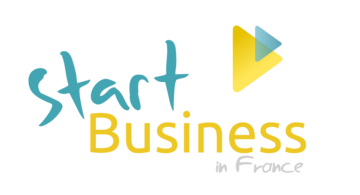The end of the year is the perfect time to review your French business activity and decide what you want to do for 2021. Here are the things that I tend to look at. I'm sharing this with you as it may come handy.
1 - Look at your numbers
Start by analysing your numbers. You have kept your bookkeeping to complete your declarations to URSSAF. Now is the time to dig deep into them, analyse them and find some patterns. I personally use Freshbooks, which enables me to compare from one year to another and analyse product sales.
- What is your yearly turnover?
- How does it compare to your initial projections or last year's sales?
- Which products or services worked best? Compare with your projection and last year.
- Can you find the explanations for major changes/ new patterns?
- Dive into your expenses. Where have you spent the most and for which results? Have some actions not generated much return on investment? Should you cancel or renew them in 2021?
2 - Honest feedback to yourself
Now that you have a clear vision of your activity, what are your achievements? What did you enjoy doing and felt were at your best? What did you hate doing and would like to stop or delegate to someone else?
3 - Assess your marketing efforts
Take the time to review the impact of your marketing efforts. Review elements that you can measure as listed below. What worked well for you? What can be dropped and what can be improved? Do you want to focus on some areas of marketing and delegate specific skills to external help? This will require some investment but may save you a lot of time and significantly improve the success of your campaign.
- How many visitors did you have on your website?
- Where does your website traffic come from?
- Which keywords are people finding you with?
- Which other websites did generate the most traffic for you?
- How many Facebook fans, Instagram followers, Twitter followers do you have?
- Which social media did generate the most interaction with your ideal customers?
- Which social media should you be concentrating your efforts on?
4 - What are your plans for 2021
Start by brainstorming what you want to do in the new year. I always start brainstorming by the end of November and even keep going for the Christmas holidays, once I've had time to relax and become more creative.
Identify the key projects that you want to implement in 2021 and break them into quarters. You cannot do it all at once, so decide what will have the most impact on your business. Some projects may also be seasonal and will naturally be placed in a specific quarter. I enjoy working with the 90-day planning for this.
5 - What will you invest in
Which external support will you need to develop your business? Which area are you ready to invest in, in order to free your time and concentrate on what you do best? What do you hate doing and would love to pass onto some external support?
What about yourself? Which skills do you want to learn and develop in 2021? Set a specific budget for this. As entrepreneurs and autodidacts, we are used to learning on the spot. But it’s also nice to have someone teaching you and saving you time and energy.
List of potential external support:
- Training: Self-development new skills and tools
- Technical support: SEO, Facebook ads, website development, community manager
- Personal assistant
- Legal advice and accountancy
- Marketing
- Customer service
- Property improvement for gite owners
- Online courses
6 - Provisional plan for 2021
Having decided on your plans and looked at your numbers, make some projections for your 2021 sales. I know that it is tough to plan with Covid, but taking into account some instability until May or June 2021, what can you expect to make? Make an optimist and pessimist simulation.
- Projected yearly sales.
- Projected sales per product or services.
- Project expenses.
- Required investment.
7 - Impact on your legal structure and tax regime
Looking at your 2021 projections, are there any direct impacts that you need to plan ahead. For instance:
- Going over the TVA threshold.
- Going over the micro-entrepreneur turnover threshold.
- A bank loan for investments or cash flow issues.
- Need for an accountant.
- Wish to move to an incorporated structure if you have 1) a new business partner 2) a lot of subcontractors and want to protect your personal asset.
- Opt for a more efficient tax regime. For instance, moving from taxes based on sales, to taxes based on profit. Or moving from income tax to incorporation tax for incorporated businesses.
Plan to go and see a business adviser or accountant to discuss these options. This will help you make a decision based on your best interest.

